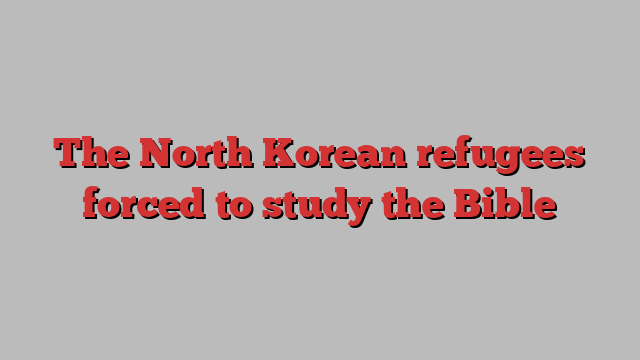
Unlock the Editor’s Digest for free
Roula Khalaf, Editor of the FT, selects her favourite stories in this weekly newsletter.
There is a chilling scene in the 2023 documentary Beyond Utopia in which Pastor Seungeun Kim, a South Korean missionary, receives a video call from a North Korean family who have just crossed the Yalu river into China. They plead for him to use his network of brokers to facilitate their escape, telling him that he is their last hope.
The film, which has been nominated for an Emmy, captures the terror of North Korea’s refugees as they attempt to escape the totalitarian regime. At its heart is Kim, a heroic figure who puts himself at risk of arrest and physical harm to help escapees who, if captured, face torture, imprisonment and death. This year, however, allegations emerged that shine an uncomfortable new light on both Kim and his mission.
For North Koreans fleeing across the Yalu or Tumen rivers that mark the border with China, escape from their home country is only the beginning. Relying on a network of brokers as likely to sell them to human trafficking gangs as they are to facilitate safe passage, their best chance of reaching South Korea is to go across China, Vietnam and Laos to Thailand, all the time evading the long arm of the Chinese authorities.
South Korea missionaries operating with and alongside broker networks may have their own demands. As Kim confirmed to the Seoul-based media outlet NK News, his organisation asks refugees to sign a consent form committing to several months of Bible study in Thailand before they are transferred to South Korea for resettlement.
Refugees who did not complete Bible study would owe the Christian organisation about $14,000 to cover the cost of their rescue. “It may look wrong to the outside world, but the reason why we are collecting money in church and to help North Koreans escape is because we want to talk [with them] about Christianity,” he told NK News, adding that the mission “will rescue only those who are willing to study the Bible”.
Kim later claimed that he would never deny a refugee assistance on the basis of their failure to sign or comply with a written agreement. The family featured in the film say that they were not made to sign a contract.
But one advocate for North Korean human rights says the revelations have crystallised unease about both the film and the contractual relationships that North Koreans are sometimes asked to enter into with their rescuers. “North Koreans, who have grown up in a system where they have no rights, are only vaguely familiar with the concept of consent and the right to say no,” they say.
Concerns about escapees’ capacity to give informed consent extends to whether the North Korean family were in a position to agree to their escape being filmed, raising the question of whether making such a film is unethical.
To complicate matters, one of the film’s producers, ex-CIA analyst Sue Mi Terry, was indicted by the FBI this month for acting as an unregistered agent of the South Korean government through her contacts with the National Intelligence Agency.
However, others argue that the film’s problematic aspects should be weighed against the considerable contribution Beyond Utopia has made to global awareness of the plight of the North Korean people.
Joanna Hosaniak of the Citizens’ Alliance for North Korean Human Rights in Seoul, says the reason that North Korean refugees are so vulnerable once on the run in China is because the Chinese and South Korean governments and the UN have all absolved themselves of responsibility for alleviating their plight. While China rounds them up and sends them back to North Korea, she argues, Seoul does little to press Beijing on the matter.
“Escapees have no alternative but to turn to clandestine support networks . . . making exploitation inevitable,” says Hosaniak.
Most discomfiting of all, however, is that the question of how to protect North Korean escapees is becoming increasingly redundant. North Korea and China have beefed up security and installed sophisticated new border-control technologies. What was once a stream of refugees has slowed to a trickle. If the North Korean regime gets its way, there will be no more refugees to protect.

